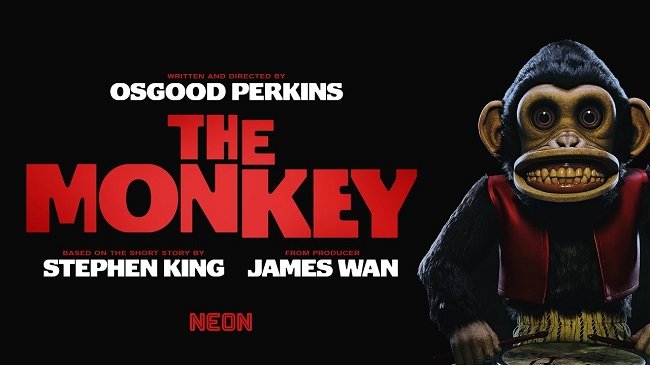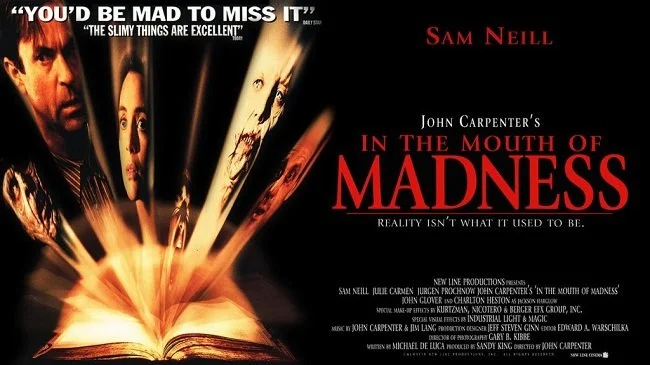Host (2020)
In his review in the New York Times Kyle Turner states that the new horror movie Host “seems to speak to a collective id” and serves as “an analogy for mourning the recent past”. I’ve read several other critiques of this nature that both praise the film and make similar philosophical musings upon its nature. As a long standing horror aficionado I am always a little sceptical when a new movie quickly gains a lot of traction and a critical consensus swiftly forms. Especially when a genre product suddenly gains the attention of the mainstream media who subsequently stray into hyperbole and hype. This happened last year with Midsommar which was hailed as a groundbreaking horror movie and indicative of a renaissance in the genre. Although an intelligent and disturbing film, Midsommar is not without flaws and is far from universally accessible. It is also frustrating the way the mainstream media is oblivious to the ongoing financial and critical success of the horror genre that has existed since the inception of cinema.
However, my ambivalence notwithstanding, in the past few days positive comments about Host have constantly appeared in my social media timelines, many of which come from grass roots sources that I trust (such as the Evolution of Horror podcast). Hence I signed up to a seven day free trial of the streaming service Shudder and watched Host under optimal conditions. IE knowing as little about the plot as possible and in a darkened room, late at night. Having had time to reflect upon my viewing and go through my notes, I believe that the popular consensus surrounding Host is certainly justified. The film is a finely honed 59 minutes, that is an intelligent reinvention of many classic horror tropes. Cleverly crafted, dovetailing modern fears and social angst with the traditional, it provides an array of scares while maintaining a tense atmosphere in that allegedly benign environment; the modern home. Is it a genre defining milestone? Not necessarily so but what it does do is tap into a lot of the psychological concerns prevalent in the current climate and integrate those into the established fear of the supernatural. Host is certainly very pertinent and “of the moment”.
Six friends, Haley, Jemma, Emma, Radina, Caroline and Teddy meet online via a Zoom video conference call. All are at home or living with partners during the ongoing lockdown. Rather than playing games or having a quiz Haley has hired a spiritual medium to hold a seance. Emma, Radina and Caroline are a little scared by the prospect of such a thing but Eddy and Jemma are both sceptical and prone to mocking it. Medium Seylan reminds the group to be respectful of the spirits and briefs them on managing their thoughts and most importantly how to correctly leave the “circle” if they become uncomfortable with the situation. As the seance progresses, Jemma screams when something touches her neck and she finds herself thinking of a friend from school called Jack who hung himself. Seylan is then disconnected from the call and one by one, each of the friends experience supernatural occurrences in their homes. Rather than contacting a benevolent spirit it becomes clear that they’ve enabled a far more malign force. Can they close the seance circle and dismiss the spectral guest?
One of the film’s greatest assets is the medium in which it is filmed. Buy using Zoom and phones on selfie sticks, there is a great sense of immediacy and the common place tech makes events more accessible. The narrative touches upon the frustrations and alien nature of the current lock down, something that is perhaps more keenly felt among the young. The characters are broadly likeable as well as plausible and the cast perform well. They’re behaviour is also in line with how people react in unknown situations. Some cope well, others go to pieces. As this is a UK production and there is a healthy dose of British colloquialisms and profanities. Where Host excels is in the effective use of its running time. The plot set up, introduction of the characters and dissent from normality into panic is perfectly paced. The idea of having the film last the length of a free Zoom call is sublime.
When supernatural events start to occur, they are initially small in scale and well implemented. Chairs move, a glass shatters and noises are heard off camera. There’s also an innovative use of the filters that come with contemporary phones and video conferencing software. In one scene the filter is triggered by the presence of the spirit and it is a genuinely scary and original sequence. Host handles the building tension well and has plenty of robust and jolting scares. If you are a long standing horror fan who has watched a prodigious amount of genre material, then you well may be able to predict some but not all. The creepy music box is an obviously telegraphed example but others will wrong foot you. The denouement is in some respects inevitable but that does not diminish its power. By the time it comes round you are so invested and engrossed in the proceedings that you still hope that things may work out.
Host is well made, inventive and exceedingly timely. It meets viewers expectations and delivers a white knuckle experience in spades. It’s also a textbook example of how the genre re-invents itself by taking its essential tropes and themes and interpreting in a way that is relevant for a modern audience. Host will especially resonate with the youth market but is still totally accessible to older horror fans who will recognise much that is traditional and de rigueur. I’m not sure if there is a universally accepted term for such movies as Host yet. Wikipedia classifies such productions as “computer screen films” and a subset of the “found footage” genre. However, I’m sure those associated with the production of Host such as director Rob Savage and writers Gemma Hurley and Jed Shepherd will find themselves much sought after. They’ll no doubt be a flood of inferior films in the months to come. But they won’t stand out like Host which has found an audience through talent, enterprise and a genuine appreciation of the genre.




























